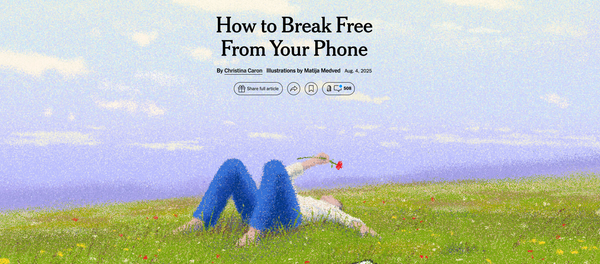Care as Assessment

Why is care paramount in formative spaces? There are a lot of reasons.
In some ways, I worry that in Christian education spaces we sort of overlook the concrete dynamics of what care makes possible, because it's just kind of "in the water" that love, regard, mutual concern, etc. are supposed to be part of any Christian community. "If it's not about love, it's not about God," etc. True, but let's get more specific.
I can't believe I'm starting with this, but part of why care is so important to formation is that it helps us be better at assessment. Assessment has a bad reputation,
- partly from traumatic and unjust experiences of high-stakes testing in schooling settings;
- partly because a lot of us are uncomfortable with the idea that we are somehow evaluating the people we serve in faith formation settings; and
- partly because most of us don't love (or especially trust?) taking surveys, which tends to be how a lot of assessment happens in non-school settings.
But assessment is really just caring about what participants are learning or taking away from the experiences they have with us. Care is bringing positive intentions to the act of paying attention, and when we pay attention we notice people's affect, abilities, and engagement with each other—many of the markers that signal to us whether and how they're "getting it."
The mode of "assessment as caring about the people we serve" is especially important in out-of-school settings if the people might not want to be there with us. This can be true in programs for people who are considered by social systems to be "at risk" and thus are compelled in various ways to participate. That's the kind of setting that the people who taught me to do educational research are often working in. But there are all kinds of family and social pressures that bring folks, young people and adults alike, to faith formation spaces.
OK, so what do I mean, more concretely, about care as a mode of assessment? Preachers talk about "reading the room." I'm talking about reading our learners. Caring about what they're up to in our spaces is an under-rated way to measure our impact.
- Do they look bored? Excited? Curious?
- Are they listening and responding to each other and not just to the leader?
- Do we hear laughter, grunts of concentration, murmurs of discontent?
Try to pay attention to body language, tone of voice, movement and interaction in the space, etc. And if at all possible, talk about what you noticed after a session with co-leaders or other trustworthy conversation partners.
Write down your observations (in a notebook or document you can keep coming back to), especially if they reinforced (or challenged) your confidence that your people are tracking with where you're trying to lead them. You might be surprised how compelling a picture of your people's learning emerges over weeks or months.
Tomorrow: care and responsiveness.



